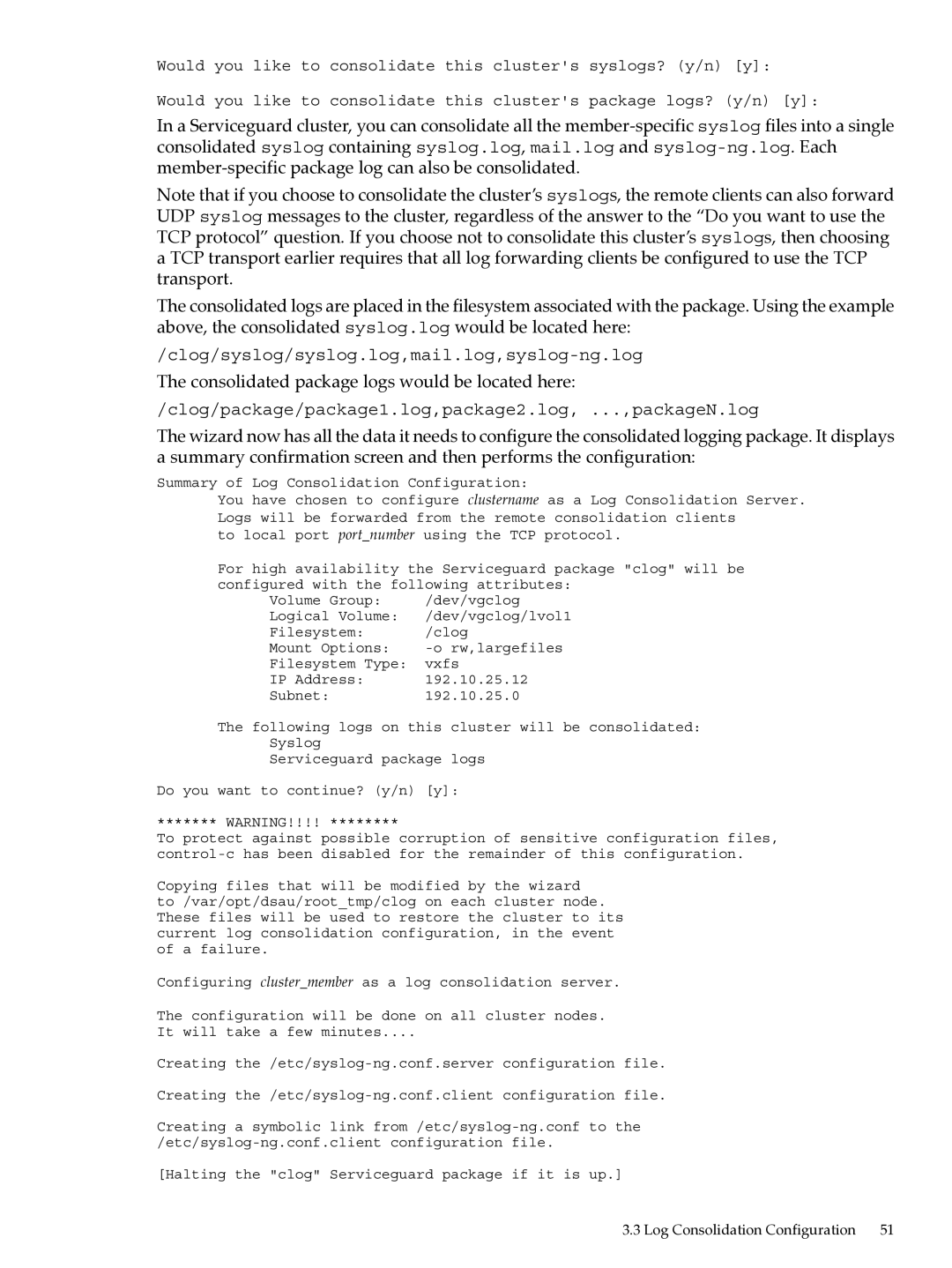Would you like to consolidate this cluster's syslogs? (y/n) [y]:
Would you like to consolidate this cluster's package logs? (y/n) [y]:
In a Serviceguard cluster, you can consolidate all the
Note that if you choose to consolidate the cluster’s syslogs, the remote clients can also forward UDP syslog messages to the cluster, regardless of the answer to the “Do you want to use the TCP protocol” question. If you choose not to consolidate this cluster’s syslogs, then choosing a TCP transport earlier requires that all log forwarding clients be configured to use the TCP transport.
The consolidated logs are placed in the filesystem associated with the package. Using the example above, the consolidated syslog.log would be located here:
The consolidated package logs would be located here:
/clog/package/package1.log,package2.log, ...,packageN.log
The wizard now has all the data it needs to configure the consolidated logging package. It displays a summary confirmation screen and then performs the configuration:
Summary of Log Consolidation Configuration:
You have chosen to configure clustername as a Log Consolidation Server. Logs will be forwarded from the remote consolidation clients
to local port port_number using the TCP protocol.
For high availability the Serviceguard package "clog" will be configured with the following attributes:
Volume Group: | /dev/vgclog |
Logical Volume: | /dev/vgclog/lvol1 |
Filesystem: | /clog |
Mount Options: | |
Filesystem Type: | vxfs |
IP Address: | 192.10.25.12 |
Subnet: | 192.10.25.0 |
The following logs on this cluster will be consolidated:
Syslog
Serviceguard package logs
Do you want to continue? (y/n) [y]:
******* WARNING!!!! ********
To protect against possible corruption of sensitive configuration files,
Copying files that will be modified by the wizard to /var/opt/dsau/root_tmp/clog on each cluster node. These files will be used to restore the cluster to its current log consolidation configuration, in the event of a failure.
Configuring cluster_member as a log consolidation server.
The configuration will be done on all cluster nodes.
It will take a few minutes....
Creating
Creating
Creating a symbolic link
[Halting the "clog" Serviceguard package if it is up.]
3.3 Log Consolidation Configuration | 51 |
